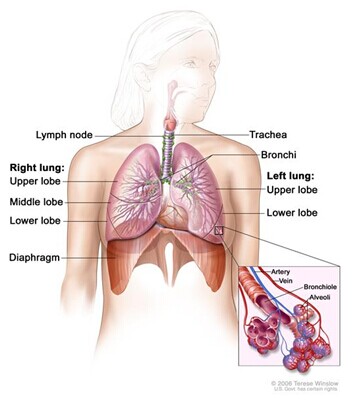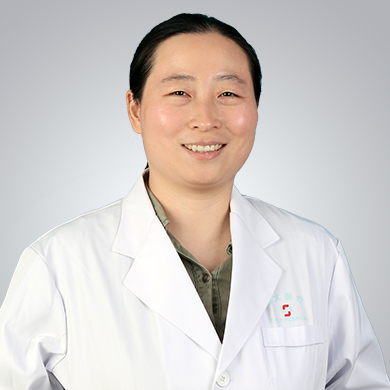"Visiting someone in China always involves bringing a gift." Five years ago, Mr. Zheng (a pseudonym) from Macau was diagnosed with stage IV lung cancer and hospitalized, enduring immense suffering that left him hopeless. However, he successfully underwent treatment at the Guangzhou Fuda Cancer Hospital's Department of Medical Oncology. Recently, he and his wife revisited the hospital, bearing a special token of appreciation, to thank the medical staff for giving him five more years of life.
In 2019, despite having quit smoking for seven years, Mr. Zheng experienced a persistent cough and sought help from a respiratory specialist. Although initial treatments were unremarkable, his symptoms worsened, progressing to hemoptysis and chest pain. A PET-CT scan revealed a mass in the left lower lobe of his lung, along with lymph node and bone metastases. A biopsy confirmed stage IV poorly differentiated adenocarcinoma of the lung.
The grim prognosis felt like a death sentence to Mr. Zheng, who believed he had little hope left. Struggling with anxiety and sleeplessness, he searched tirelessly for alternatives. By chance, he discovered Guangzhou Fuda Cancer Hospital online. Skeptical but desperate, he decided to pursue treatment there, placing all his hopes on this last chance.
On October 22, 2019, Mr. Zheng arrived at Fuda Cancer Hospital. Initially hesitant due to the small patient volume, he gained confidence upon noticing the international presence, which he saw as a testament to the hospital's reputation.
Upon admission, comprehensive evaluations identified three tumor sites, including a significant lesion in the left lower lung and metastases in the sternum. A multidisciplinary team, led by Dr. Long Xin’an, formulated a personalized treatment plan. On October 23 and 31, Mr. Zheng underwent two cryoablation procedures targeting the lung and sternum tumors. Biopsy results confirmed advanced adenocarcinoma with extensive metastasis.
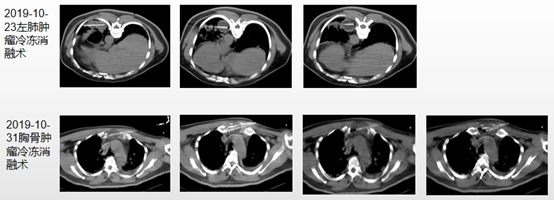
The cryoablation procedures yielded promising results, shrinking the tumors. However, further genetic testing revealed a high PD-L1 expression (SP263, TC > 50%). This made Mr. Zheng an excellent candidate for immunotherapy with PD-1 inhibitors. Following the initial cryoablation treatments, he commenced first-line PD-1 monoclonal antibody therapy.
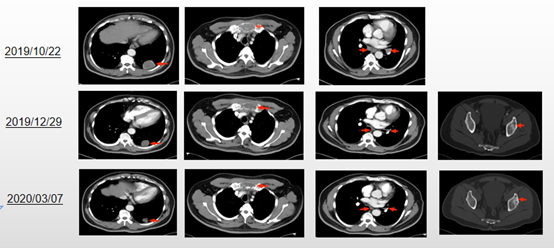

Between November 2019 and April 2023, Mr. Zheng received 35 rounds of PD-1 immunotherapy. Regular CT scans showed significant tumor reduction, and his tumor markers returned to normal levels, with his condition assessed as a partial response (PR). He resumed normal work and daily life, cherishing every moment with a renewed sense of purpose.
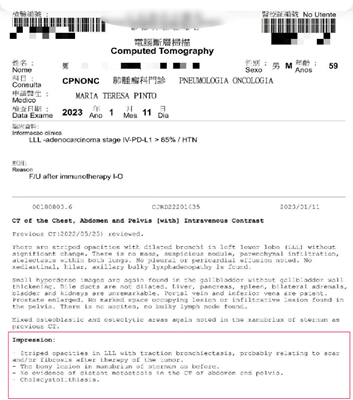
▲By January 2023, local follow-ups confirmed stable disease, with no significant changes in tumor size. A final phone follow-up in April revealed Mr. Zheng in good general health, marking five years of survival since his diagnosis.
Returning to Guangzhou Fuda Cancer Hospital, Mr. Zheng expressed his gratitude not only through words but with action. He donated ¥3,000 to the Fuda Benevolent Fund, which supports underprivileged cancer patients. For Mr. Zheng, this was his way of giving back and enabling others to overcome their battle with cancer.
"Fuda gave me hope and solutions. I hope my contribution will help others cross this difficult threshold," said Mr. Zheng, whose optimism remains contagious.
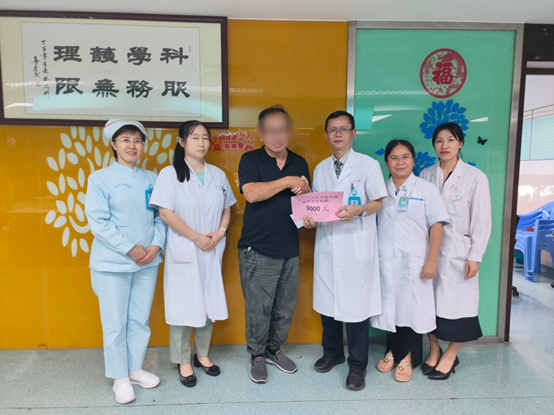
Medical Insight: Understanding Lung Adenocarcinoma
Lung adenocarcinoma, a subtype of non-small cell lung cancer (NSCLC), often presents with mild or no symptoms, leading to late-stage diagnosis in many cases. While early-stage disease may be managed with surgery, advanced stages typically require comprehensive approaches, including chemotherapy, radiotherapy, targeted therapy, immunotherapy, and innovative local treatments like cryoablation.
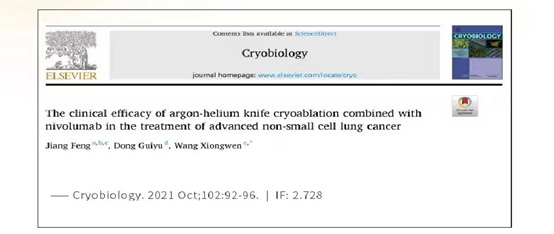
Cryoablation, a novel local therapy, is increasingly recognized in guidelines for treating early and locally advanced NSCLC. It induces tumor antigen release through cellular rupture, potentially enhancing the efficacy of immunotherapy. Research highlights the combined benefits of cryoablation and PD-1 inhibitors, particularly in late-stage NSCLC, offering improved safety and efficacy over cryoablation alone.
Mr. Zheng's story is a testament to the transformative power of multidisciplinary and personalized cancer care, inspiring hope for patients and advancing cancer treatment practices worldwide.
